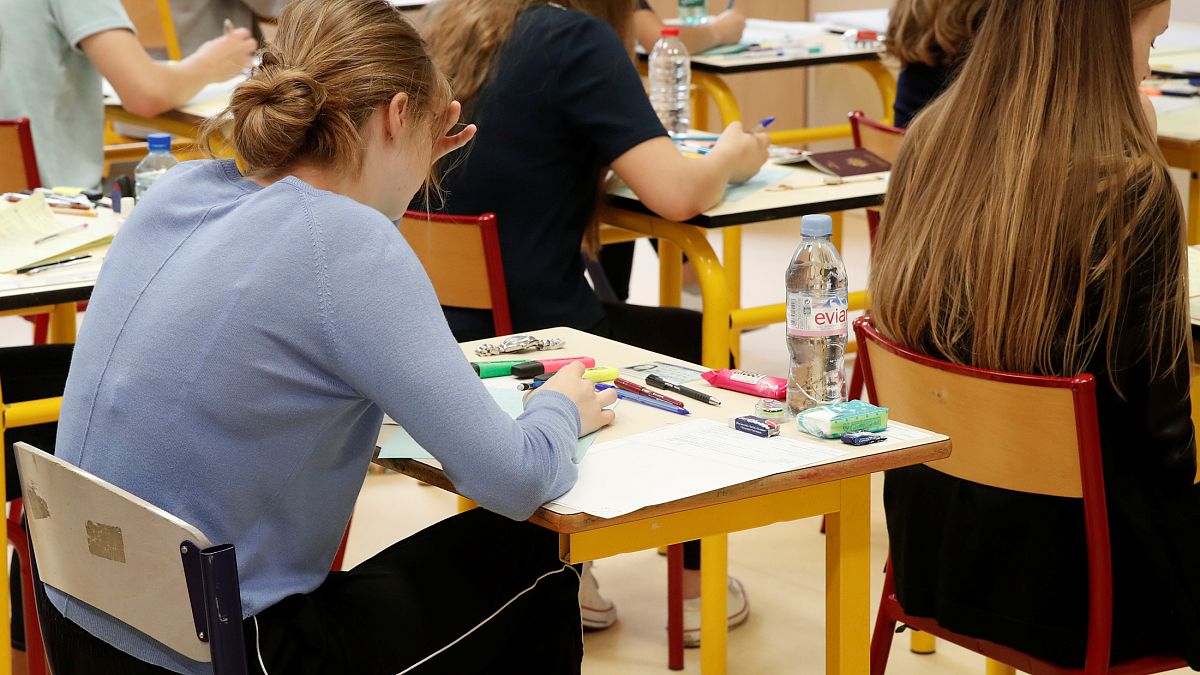Two Belgian teachers who find this French conjugation rule "absurd" are trying to change it.
Two French teachers from Belgium want to "modernise" the French language by getting rid of one of its most complicated conjugation rules.
Here's what's complicated:
The verb to have (avoir) in French is essential for mastering French conjugation because it’s used as an auxiliary verb with the past participle to make compound tenses and it can also be used as an adjective. This only affects, however, direct objects that are either singular feminine or plural.
Sound like a mouthful? Here's an example to show how it works:
The sentence: J'ai mangé des pommes (I ate apples) is one way of writing that you ate some apples. This is how most people would say the act during a conversation in French.
In this sentence: Les pommes que j'ai mangées (The apples I ate), teachers pushing for the reform would say the conjugation of manger in this case is antiquated, and not what French speakers would think when talking. So advocates for changing the principle are arguing that the rule should be uniform so that it becomes correct to say: Les pommes que j'ai mangé.
The two Belgian teachers who find the rule 'antiquated'
Arnaud Hoedt and Jérôme Piron find the current conjugation rule way too complicated. In an opinion piece published on Monday, they wrote: “Children ask themselves why the past participle is conjugated differently depending on the placement of the direct object."
To them, the rules detailing “how past participles are conjugated with auxiliary verbs are completely obsolete and complicated”.
The French teachers say it takes them "80 hours on average" to teach these rules to students only for them to "complain about the complexity of the language."
To them, time "would be better spent developing (the French) vocabulary, learning syntax, developing a taste for literature, understanding morphology or exploring etymology."
"It would be more valuable to teach kids how to master the language rather than make them remember the most arbitrary parts of the language,” the teachers said.
So what’s their proposal?
The teachers believe they can simplify these rules to everyone's advantage by introducing the “uniformity of past participles with the auxiliary to have”.
“It’s not about destabilising the system or getting rid of what makes our spelling, but to maintain a unique rule that makes sense,” wrote Hoedt and Piron.
"What we want is to decriminalise how past principles are conjugated with the auxiliary verb to have ... children should not be sanctioned for reasoning another way that is grammatically correct," Hoedt told Euronews, adding that ultimately what they sought was the "improvement" of French orthography.
The teachers came up with the proposal after talking with linguists who explained the changes would not affect the grammatical "correctness" of the conjugation.
But can their proposal become official?
Technically not. Hoedt explained that unlike the Spanish language, the French language doesn't have an international body that dictates grammar and orthography rules.
"There is no institution that can legally impose orthography to people," said Hoedt.
L'academie francaise de la langue — a renowned language institution in France — "is a false reference since its work is only symbolic," according to Hoedt.
Euronews has reached out to the academy for comment.
However, the teachers presented their proposal to the French Language Policy Council of the Wallonia-Brussels Federation and the International Council of the French Language (CILF) who issues proposals on advisable spellings. In 2015, CILF advised the Belgian government to take up the reforms in 2015 to no avail.
In an email to Euronews, Nathalie Marchal, director of the French language department of the Wallonia-Brussels Federation, said that her department found the teachers' proposal "very interesting" since "it offered a real rationalisation of French spelling."
But Marchal highlighted that the final decision on whether this proposal would be suggested to schools would ultimately fall on the Belgian ministry of education.
According to Hoedt, schools and teachers can put in place new orthography rules if they want to but they cannot be forced to do so.
Euronews has reached out to the International Council of the French Language for comment.
